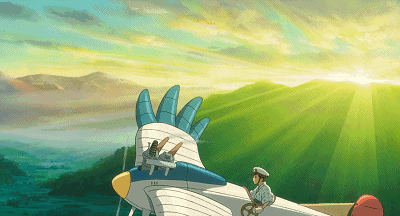Warning: This article contains light spoilers for a movie from 2007. You should still watch it though. In fact, I’d love if you watched it first then came back to read this. It’s a short film, and I don’t spoil much, but going in blind is always better!
A Nostalgic Return to Viewing Simplicity
We’ve lost something. All of us, we’ve lost something. With IMDb, Twitter, TikTok, Instagram, Facebook, Snapchat, YouTube, Reddit and Sora (shudders in dystopian fear), we’ve lost something.
It’s watching movies based on your interest alone. No reviews. No IMDb scores. No checking what others are saying online. Just you. What do you think of the synopsis? Does the VHS or DVD cover catch your eye? What about the poster at the video store? Did the trailer grab you? Or maybe you heard about it from someone you actually know? That’s how we used to decide what to watch.
Well, I got to return to that world one rainy morning at Visart Cafe, a vintage video store and cafe hybrid run by a nonprofit that’s been supporting film literacy since the 80s. I was there to work remotely, and seeing as I was the only customer, they graciously asked if I wanted to choose a film to put up on their big (small) screen.
I walked through their massive collection of VHS tapes and DVDs and settled on two options. Things We Lost in the Fire (2007) featuring Halle Berry and Benicio del Toro, and Reign of Fire (2002) featuring Christian Bale and Matthew McConaughey.
I left it in the capable hands of the staff to choose which to show first, and I’m glad I did. They chose Things We Lost in the Fire, and in what was my first viewing of the film, I was pleasantly surprised. Touched really. I needed a film like it. Something that highlights maintaining hope through the pain, and living life one step day at a time.
More than a decade after its release, it has a 7.1 on IMDb and a 65% on Rotten Tomatoes, which is a reminder of why you should just watch movies. Tune out the cacophony of opinion hailing from people you don’t know. I went in blind, no expectations, no preconceptions. Just a movie I’d never heard of from 2007 that I ended up enjoying. That’s how it should be. Just live man. Just live.
Not Your Typical Love Story
Things We Lost in the Fire is a beautiful drama, so I’m going to try and review it without spoiling too much. You should watch it! One of the film’s major themes is love, but not just the romantic kind. All four of the loves make an appearance in some way, shape, or form.
You start off thinking to yourself okay I know where this is heading. This is going to be a typical Hollywood find-a-way-to-put-two-really-good-looking-people-together movie, but it’s more than that. The film subverts those expectations and goes deeper.
Audrey Burke (Halle Berry) loses her husband Brian Burke (David Duchovny) in the opening of the film. Brian was everything you’d want in a husband and father. Compassionate, loving, and loyal to a fault. He refused to abandon anyone, especially his childhood best friend Jerry Sunborne (Benicio del Toro), despite Jerry’s ongoing battle with heroin addiction.
After Brian’s death, Audrey has to navigate grief while raising their two children, Harper (Alexis Llewellyn) and Dory (Micah Berry). She’s always resented Jerry, seeing him as proof of her husband’s “foolish” need to see good in everyone. Yet she surprises herself by inviting Jerry to the funeral. Going even further, she tries to honor Brian’s memory by extending the same love he showed Jerry. What follows is an unexpected arrangement where Jerry moves into the family’s garage as he attempts to get clean.
The film explores whether two broken people, both grieving and clearly attracted to one another, can help put each other back together without crossing boundaries that shouldn’t be crossed. It’s about honoring the memory of someone you love by loving the people they loved, even when it’s hard. Even when you don’t want to. Even when society might judge you for it.
The Diversity of Love
What touched me most about this film is its depiction of love that goes well beyond romance. Brian loved his best friend Jerry, and Jerry loved him, unconditionally, even though he was a heroin addict. Brian never gave up on him, never stopped seeing him, never stopped mentioning him to his wife and kids, never stopped celebrating his birthday.
That right there, that’s Agape love, the fundamental tenet of the teachings of Jesus Christ. It doesn’t matter how many times someone messes up, you’re there, you’re forgiving, you’re loving, while that same love flows back to you from God above.
Check out The Four Loves by C.S. Lewis to understand how we’ve oversimplified the word love in English. Other languages use different words for “I love chocolate” versus “I love my family” while we just have one word that we discern by context.
I enjoyed how as the film progressed they kept you off balance as to whether or not Jerry (Benicio del Toro) and Audrey (Halle Berry) would be hooking up. My initial reaction was this is a very tough situation for them both. Your best friend is dead, you want to be there for the family, but you don’t want to take his place or try and do anything sheisty.
It reminds me of the movie Brothers with Tobey Maguire, Jake Gyllenhaal and Natalie Portman. Different premise but similar with the thought of someone passing and what that does to your bro code when stepping in to be there for the family.
Halle Berry Shines
Halle Berry did some of her finest acting in this film. I mean, my whole life I seriously can’t say I’ve ever seen her in a movie where her acting alone is what made me enjoy the time I spent watching.
But in this one, her exceptional good looks fade to the background, and she does a great job at showing grief in various ways. It lingers over her through empty stares, mechanical movements, and moments of sudden exhaustion that overtake her mid-conversation. Even when she’s with her kids, it’s like she’s there but not fully there.
And her interactions with Benicio del Toro’s character Jerry, who grapples with addiction, seal the deal on her performance. A favorite scene of mine is when she finds out that Jerry didn’t actually take money from their car when her late husband went to visit him, after she’d accused him of being a thief to her husband that same day. It’s golden how she shows us without words that feeling of “man I’ve been such a jerk.”
It also reinforces that Jerry, a former lawyer, now heroin addict, is honorable. He wouldn’t steal from his friend or risk being a burden on him. He wouldn’t even show his face around the house until he was clean. He wasn’t a bad guy, he was just a man who fell off the wagon, who made mistakes, and was trying to work his way back.
Love That Heals
As the film progressed, my initial reaction of “ayo this is wild having this man move in when your husband just died like give it some time” started to fade. I began to understand that Audrey is driven by guilt. She openly admits to hating Jerry for being friends with Brian, and now that Brian is dead, she wants to make amends by loving the person her husband loved, carrying on his legacy of compassion.
Side Note: Shout out to the dead husband for setting his family up to never worry about money. That’s how you do it fam if you’re going to up and die playing hero (watch the film to learn more). Make sure your people are good.
Audrey’s trying to extend that love, and the guilt she feels at her prior hatred is real. So it makes sense that she moves Jerry in, but there’s one really weird scene where he helps her with her insomnia that I just, like listen man, that was weird. Watch the movie, you’ll see what I mean.
Grief That Lingers
By extending love to Jerry to honor her husband, Audrey slowly begins to find peace. That’s what took her past grief, letting go of her hatred, opening her heart. It brought not just her but her kids together and gave Jerry the motivation to get clean.
Now look, I see Jesus in everything. It’s often said that two people can look at something, one person sees trash, the other treasure, or the glass half full or half empty. There’s truth in those clichés. I see Christian themes of love in this film. I saw the same in Naruto, in Harry Potter, in Game of Thrones.
If you ever run into me, ask me about any film, movie, show, or anime I’ve seen and I’ll find a way to show you Jesus through it. And so, redemption being a core theme of this film, and that being offered through love from Audrey to Jerry in honor of Brian’s initial love?
Yeah, that speaks to me. Because what is grief, if not love persevering?
The Supporting Cast
The relationship between the kids and Jerry was well done. The kids, played by Alexis Llewellyn and Micah Berry, weren’t annoying, which is rare for child actors (who are now adults the same age as me lol). Their behavior and mannerisms were in line with how you’d expect a kid to talk.
The only thing I think is weird is how quickly they moved away from their Dad towards Jerry. I mean I get that grieving children are going to look for comfort, but it would’ve been more realistic to show them resisting their Mom moving a man in so soon after Dad’s death. Their father was great to them, yet within weeks they’re already treating Jerry like a replacement dad.
That minor gripe aside, the rest of the supporting cast really brings this film to life. I especially loved John Carroll Lynch’s character Howard as comedic relief and just as a really solid guy. He didn’t judge Jerry for his addiction, and was instantly willing to hear him out and return his honesty with honesty of his own. Just a jolly fellow, sincere and down to earth.
I also really liked how Audrey’s whole family ends up embracing Jerry without judgement. They didn’t look down on him. They extended to him the same love that his best friend, their lost husband, brother in law, son in law, father, had extended to Jerry. They continued that love in his honor, despite never meeting Jerry while Brian was alive. I loved seeing that.
Other Thoughts
The movie takes place in Seattle, which is something you can miss if you’re not paying attention.
I grew up in the greater Seattle area so when I heard Jerry was down in Renton on a heroin bender, I was like you know what, that tracks lol. Although Renton has been gentrified these days, back in the 2000s and 2010s, it wasn’t exactly a nice place to hangout.
The thing I miss about the Seattle area is surprisingly the rainy weather. For some, it makes them want to stay at home and do nothing. But it makes me want to sit in a coffee shop or bookstore by the window and read something good, drink a hot tea, and watch the rain. Then walk home without an umbrella, with my hood only half drawn, so I can feel that patented spray bottle pitter patter misty Seattle-style rain on my face.
Also, when it’s gray and rainy, all the coolest places in a city are less busy. You can go and get the whole place to yourself. The moment it starts raining, I find the hottest trending Instagram or TikTok spot and finally go check it out. It’ll be me, the staff, and one or two other people who don’t let the weather stop their mojo.
Anyways, Seattle man. For all its problems, it’s not the geographic region that’s the cause of any of it. The Pacific Northwest is beautiful!
I also think the film’s title Things We Lost in the Fire is beautiful. The scene in the film where they finally say it is so very well done. I had a moment like this Family Guy clip of going “they said it!”, but in a good way. It wasn’t random. It fit. It was natural. Bravo.
Box Office Bomb, Artistic Triumph
Cash rules everything around both you and me, despite that being a terrible way to live, and the movie industry is no exception.
Things We Lost in the Fire was a box office bomb. Budget of $16 million, worldwide gross of only $8.5 million, but who cares? Some of the best films tank at the box office (looking at you my beloved Treasure Planet). This is one of them.
The closing scenes are deeply emotional. Audrey drives through the rain to pick up flowers left at her door, with the film’s motif playing. It’ll leave you in tears if you’re the crying type. I’ll admit I got teary-eyed near the end. I didn’t cry though (although if I did, you’ll never know), since I was watching it in public (shoutout Visart Cafe).
And then we get a final monologue from Benicio del Toro’s Jerry. It’s hauntingly beautiful. A man 89 days clean of heroin, battling through it all, adopting the simple but true concept of taking life one day at a time.
That’s how Jerry gets clean. That’s how Audrey moves through grief. That’s how the kids learn to live without their father. That’s how we all get through the things we lose in the fire.
Love doesn’t die when people do. It just finds new ways to heal the living. Brian’s love for Jerry became Audrey’s love for Jerry. That love spread to her entire family, and Jerry reciprocated it in kind. And that love? It saved them all.
One day at a time man. One day at a time. The wind rises, we must try to live!!

Note: That gif is from the Studio Ghibli film The Wind Rises, a great watch if you’re looking for a hopeful reminder to take life one day at a time.




